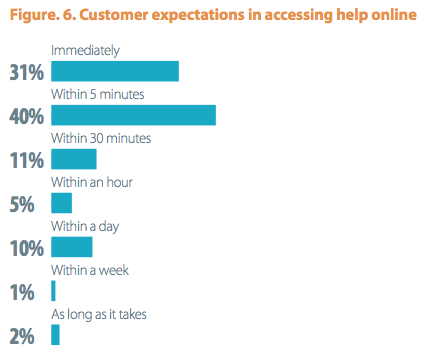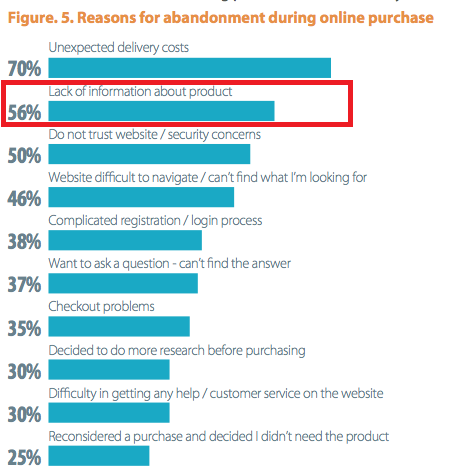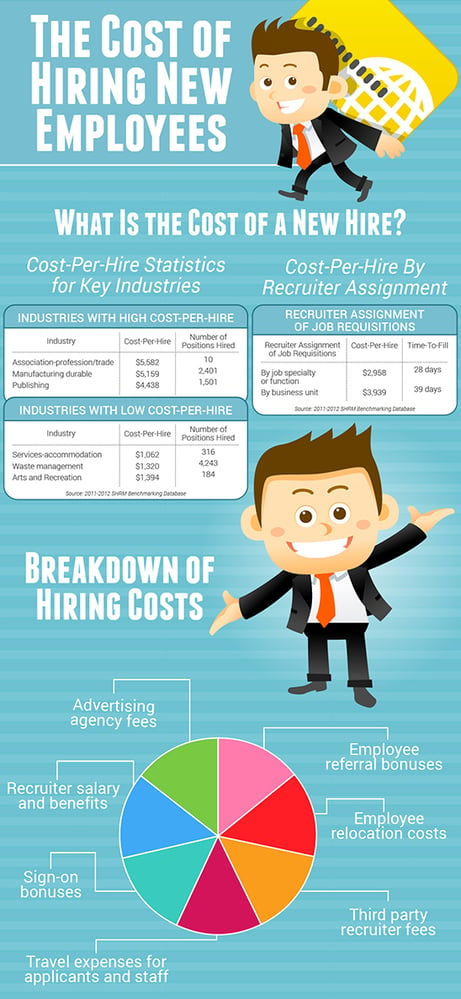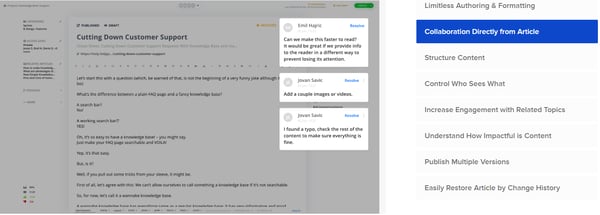November 8, 2019
 by Josh Brown / November 8, 2019
by Josh Brown / November 8, 2019

Your business and the people within it have a large pool of knowledge.
This information is invaluable to your company’s ability to provide a fantastic product. To get the most from this knowledge, however, you need to ensure everyone who can benefit from it has access.
Knowledge base software helps your business do this in two main ways: it enables your staff to effectively share and access all your company’s knowledge, and it provides instant access to information that can help customers solve problems and make buying decisions.
In this article, we’ll explore how businesses can use a knowledge base to provide a better customer experience, work more efficiently, cut costs, and increase revenue.
A knowledge base helps your business create an online resource used to organize and share knowledge with the people that need it.
Different knowledge base software solutions come with their own unique features. They will usually contain some of the following:
|
Your company can build a knowledge base internally or externally. Internal knowledge bases are only accessible to your company’s workforce. They provide employees with easy access to all the information they need about your product or service.
Having access to this information can improve performance across your company. Sales teams can access proven strategies to overcome customer objections, or customer support personnel can find the information they need to answer customer queries.
External knowledge bases are aimed at your customers and clients. They provide these people with instant, searchable access to the information they need to get the most from your product.
This benefits both customers and your business. Customers get access to helpful information as soon as they need it, and your company is able to provide a better customer experience while saving money that would otherwise be spent on customer support.
Knowledge base software can be open source or SaaS-based. What is better for your company depends entirely on your business needs.
If you want full control of the knowledge base software so that you can customize the code to your heart’s delight (for those that need multiple integrations) then open source may be the way to go. However, it comes at a cost. Literally, as you’ll need developers and IT staff for customizing and supporting the software.
On the other hand, a SaaS knowledge base is easier to deploy as well as maintain without the need for any additional employees for development and support. The downside to a SaaS knowledge base is the inability to modify the code at a granular level.
Knowledge bases have much in common with corporate wikis. They both provide a place for knowledge to be shared and stored. However, they are not the same thing. While wikis are user-created pages, knowledge bases can only be edited and added to by people with access to the software’s editing features.
Additionally, knowledge base software often comes with advanced features. For example, a more powerful search tool, or the ability to customize what different sets of people: management, employees, customers, and so on, can access.
Knowledge management is all about the tools, software, and processes used to collect, organize, share, and transfer all the knowledge that is stored in your business. Ultimately, this will allow those at your company to apply the knowledge in their work.
Knowledge bases help streamline a knowledge management system; the act of recording and sharing your company’s knowledge to make it available to more people.
Knowledge bases, both internal and external, have multiple benefits that can ultimately result in increased productivity and reduced costs. Here is a rundown of some of the main ones.
Let’s go over the benefits of internal knowledge base software solutions.
Poor organization costs your business by reducing the productivity of workers. For example, a study by Fellowes estimated that searching for misplaced documents costs UK businesses £20 million a year in wasted time.
Knowledge bases help solve this problem by storing important information in an easily searchable digital database. The time saved looking for answers will free up your employees to focus on more important tasks.
Additionally, teams will be less reliant on the people with the knowledge they need—for example, tech support or management, which will free up time so they can focus on more important tasks.
Imagine your customer support team has an employee everyone loves. There’s not a customer problem they don’t have the answer to and they know the ins-and-outs of your product like the back of their hand.
Losing this person could have a serious negative impact on the ability of your customer support employees to help your users. If the employee leaves, all their knowledge goes with them.
By sharing company knowledge, an internal knowledge base reduces your reliance on individuals. This can lessen the negative effects of employee turnover. Instead of an employee’s knowledge leaving with them when they leave the company, it stays in-house, in the knowledge base.
According to a study by Deloitte, 80% of those surveyed said sharing knowledge increases competitive advantage and adds value for clients. While there are other ways to share information such as with wikis or documents, a knowledge base is a more user-friendly option.
Search features make it easy for employees to find the information they need, while easy to use editing software allows those with knowledge to share it in a clear and concise way.
Now, let’s go over the benefits of external knowledge base software solutions.
Knowledge bases can be used by customers during the sales process to help them make buying decisions. Providing a great source of product information is especially important when you consider LivePerson’s Connecting with Consumers report found that 83% of consumers need help during the online sales process with 71% of shoppers looking for assistance within the first five minutes.

A lack of information about a product was given as a reason for cart abandonment during the online sales process 56% of the time.

A knowledge base can ease the sales process by giving consumers instant access to the help they need to make a purchasing decision. This could result in more sales.
When customers use your product and run into a roadblock (i.e. they can’t find out how to use a feature, they’ve run into a bug, they’re experiencing some other technical issue), your support system will be their first port of call.
If you can help them in a quick and pain-free way, you’ve created a customer who is instantly much more engaged. Over time, your customers will truly trust your business and will be happy to continue to bring more value to your business.
A knowledge base combined with a strong support team helps you create this kind of positive, engagement-nurturing experience. Customer-centric businesses build more profitable customer relationships and extract more value out of each customer.
This will all lead to a better experience for the customer. Not only will they get the answers they need faster, but your customer support teams will receive fewer tickets and requests from customers.
This means your customer support team can give your customers the attention they need when facing more complicated problems, but let them get on with their work when the issue is small and easily resolved.
We’ll take a deeper dive into customer support, employee onboarding, IT procedures, and sales.
Your brand must be able to provide a positive customer experience. Research by VisionCritical suggests that customers in the U.S. will cut their ties with a brand after just two bad service experiences.
Knowledge base software is a key tool in your arsenal when it comes to providing great customer support. By storing information about your product: user guides, manuals, troubleshooting answers to common customer questions, and making it easily searchable, consumers gain instant access to answers to the questions they have about your product.
Onboarding new employees is a long process that goes well beyond simply hiring new people. Businesses need to provide these new hires with training about the processes and mechanisms of the way the company does business, as well as information about the ins and outs of the organization's culture and mission.
An effective onboarding process is important. Digitate found employees that have a negative onboarding experience are twice as likely to seek out new opportunities in the future. Ultimately, this could be costly for your business as the average cost per each hire, depending on industry, is $4,129.

So how can a knowledge base help? Put simply, a well-curated knowledge base provides recruits with all the information they need to be successful in the job.
The process starts well before the employee’s first day at work, allowing them to hit the ground running. For example, by providing them with information about the documents they will need to fill out before starting.
Beyond this, a knowledge base can provide detailed instructions for the tasks the employee will need to complete. A knowledge base for a hotel worker, for example, could tell hires about customer support processes or how to use the booking system.
Most businesses rely on technology to get things done. However, many employees do not have the technical know-how needed to deal with all the issues that occur. When employees aren’t able to sort out problems on their own, it can put a lot of strain on the IT department. This is doubly important when you consider that 42% of IT departments consider themselves understaffed.
A knowledge base can help by detailing how to solve many of the smaller issues that relate to the technology your company uses. This can help employees solve problems on their own, without involving the IT team.
Imagine your company has just introduced a new CRM to streamline customer support. Even the most easy-to-use software will still take some getting used to as employees export their daily procedures to the new tool. In this case, a knowledge base that provides instructions about how to complete tasks using the new software will get employees up-to-date without burdening IT.
Knowledge bases benefit sales teams due to the specialized knowledge needed to sell different products, as well as the potential for high revenue returns on the sharing of this information.
Sales managers spend a lot of time creating optimal sales pitches that they target towards different customer segments. Putting this data in a knowledge base makes it easier for sales teams to access the information they need to build sales.
This could be useful when a sales rep comes up against an objection from a lead; perhaps the lead likes the product but thinks it is overpriced for the value it will bring. In order to overcome this objection, the rep can search for the lead’s objection in the knowledge base to gain access to the most effective ways to highlight the product's value.
Not all software is the same. The best knowledge base solutions make creating a knowledge base a simple process while providing you with powerful management tools. Here is a look at some of the features you should look out for when choosing software.
Good knowledge base tools make it easy for users to find the information they need. Key to this is that they have a powerful search feature that shows users the exact answer they are looking for. The best products understand how people search for information and improve their search features based on this.
Rich analytics shows you which articles customers are searching for as well as who is searching.

Analytics can also show which articles customers find helpful or unhelpful. This can point your customer success team towards the subjects they should be writing articles on as well as which articles they need to improve.
As part of your customer-facing product, the design of your knowledge base must fit your branding. Choosing knowledge base software that allows you to customize the template is, therefore, important. Customizable knowledge bases are also more likely to fit your company's unique requirements.

The best knowledge base software providers have an editor that allows you to style your answers in a way that makes the most sense for the specific question. This will include text formatting features, as well as the ability to customize categories and set tags.
As well as being powerful, they will also be easy to use to make sharing knowledge as simple as possible. Editors that allow multiple authors can also help by letting employees collaborate on answers to questions where necessary.

Ultimately, knowledge bases are all about the effective sharing of information. Knowledge software provides your business with the tools it needs to do so, improving the customer experience and cutting costs in the process.
Now that you're an expert on all things knowledge base, learn more about knowledge management to help amplify your team collaboration, organization, and success.
Josh Brown is part of the marketing team at Helpjuice. Helpjuice enables you to easily create a comprehensive knowledge base that can help you scale your customer support as well as collaborate better with your team.
Imagine standing in a queue to order a burger, and by the time you reach the counter, the...
 by Gowri Ramkumar
by Gowri Ramkumar
Client portals have come a long way.
 by Kevin Frei
by Kevin Frei
It’s a given: buyers are becoming smarter with every purchase.
 by Gowri Ramkumar
by Gowri Ramkumar
Imagine standing in a queue to order a burger, and by the time you reach the counter, the...
 by Gowri Ramkumar
by Gowri Ramkumar
Client portals have come a long way.
 by Kevin Frei
by Kevin Frei


